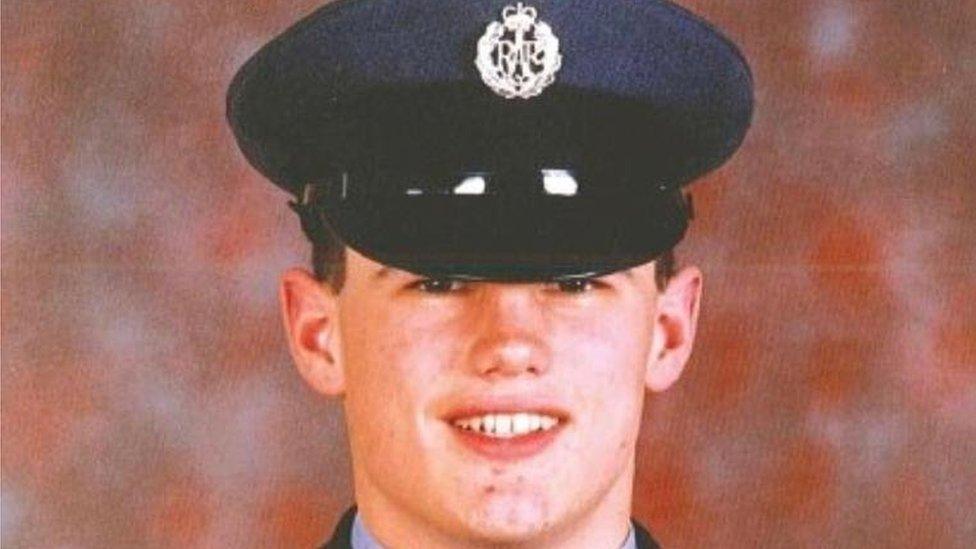Gay Northumberland navy veteran calls for government to speed up compensation
- Published
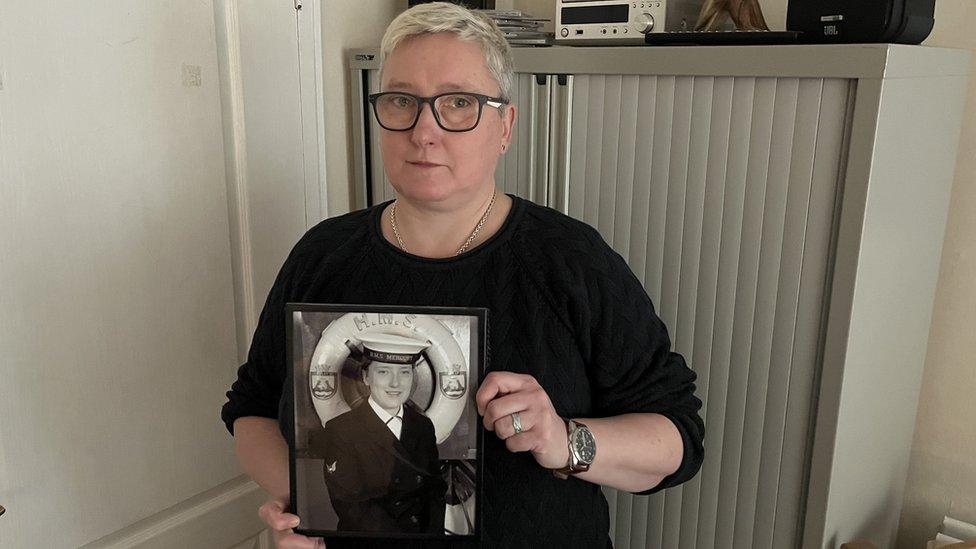
Jacqui Swan-De La Maziere joined the Royal Navy as a teenager in 1989
A Royal Navy veteran dismissed for being gay has called on the government to speed up compensation payments.
LGBT people were banned from the armed forces until the year 2000 with a review published earlier this year finding many were bullied, assaulted and left unable to claim pensions.
The government has apologised on behalf of the British state.
Jacqui Swan-De La Maziere, of Northumberland, described the situation as a "disgrace".
More than a thousand veterans gave testimony to the LGBT Veterans Independent Review, external, led by the UK's first openly gay judge, Lord Etherton.
It found significant failings in the treatment of gay servicemen and women and made 49 recommendations which the government said it had accepted.
Veterans affected can now register their interest in applying for reparative schemes with compensation capped at £50m.
'Witch hunt'
Ms Swan-De La Maziere, a 52-year-old former radio operator, was among those who spoke to the review.
She told the BBC she had been an "introverted teenager" who discovered she was gay after joining the navy in 1989.
Serving in the Gulf and the Falklands, she said there had been a "witch hunt" against homosexual people and that she was dismissed in 1992 having been reported to navy bosses after being seen getting into a car with a gay person.
"I was dragged out of bed, handcuffed and spat at," she said.
"I was told I was a disgrace to the Royal Navy and wasn't fit to wear the uniform or serve in the armed forces."
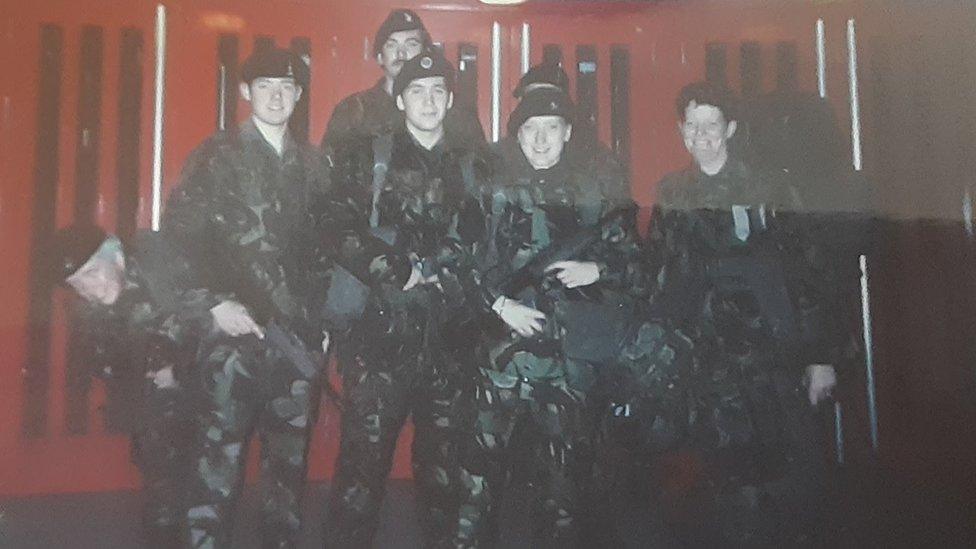
Jacqui Swan-De La Maziere (right) served in the Falklands and the Gulf during her time in the navy
Speaking earlier this week, Defence minister Andrew Murrison said veterans' treatment "has long been a stain on the conscience of the nation" and that the government was "throwing open the door" for them to apply for restorative justice, including the return of medals stripped away.
A Parliamentary debate will also be held in the new year after a government U-turn.
However, Ms Swan-De La Maziere described that response as "tokenism" and called for a swifter resolution.
"Successive governments have had 23 years to sort this out and we've been waiting months for more information," she said.
"Now we're being told that we've got to wait until next year."
The decriminalisation of homosexuality in the UK began in 1967.
Kevan Jones, Labour MP for North Durham and a former shadow Defence minister, said the £50m cap on payments "wouldn't even touch the sides" of the amount needed.
The Ministry of Defence has not confirmed when the Parliamentary debate will take place next year.

Follow BBC North East on Facebook, external, X (formerly Twitter), , externaland Instagram, external. Send your story ideas to northeastandcumbria@bbc.co.uk, external.
Related topics
- Published13 December 2023
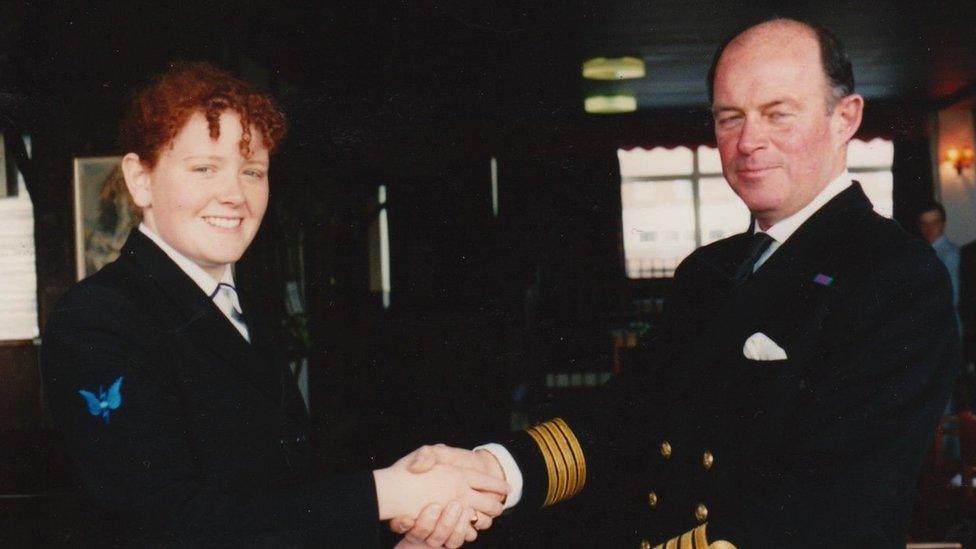
- Published11 December 2023
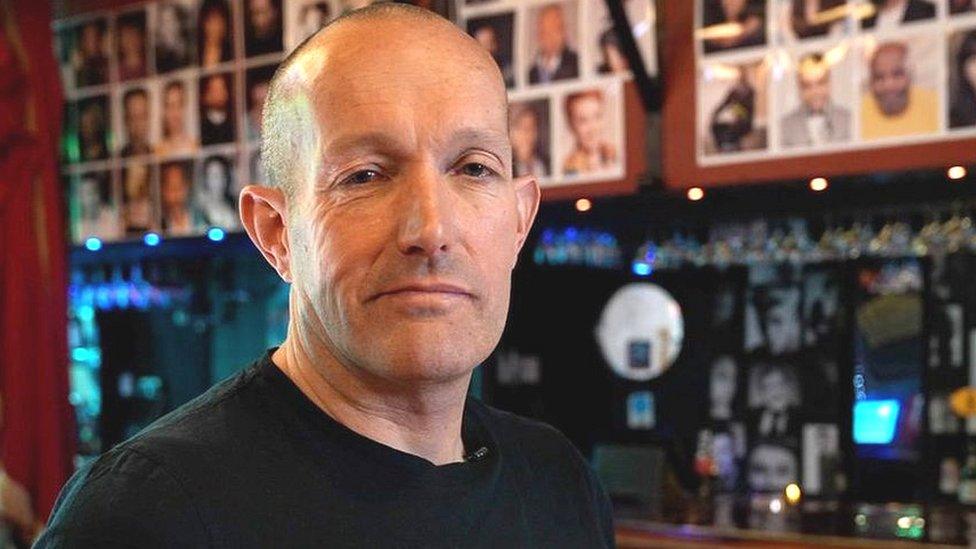
- Published19 January 2022
